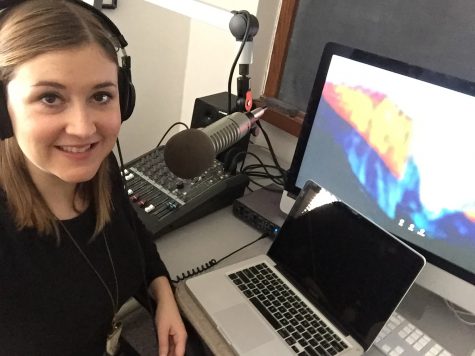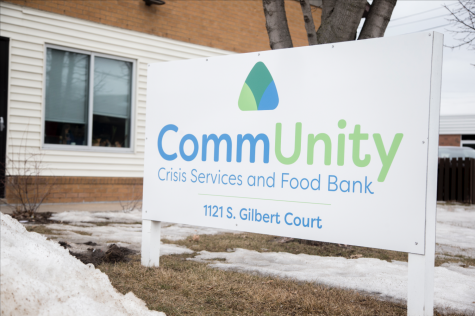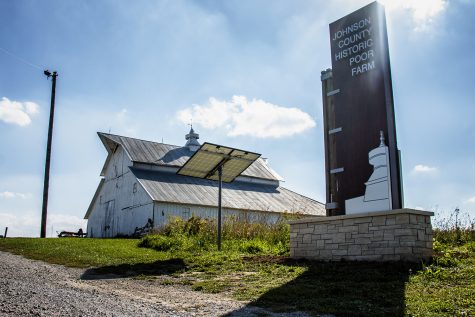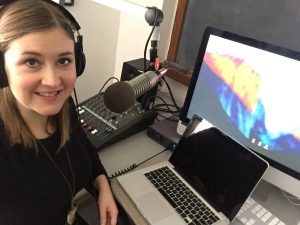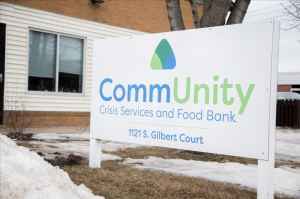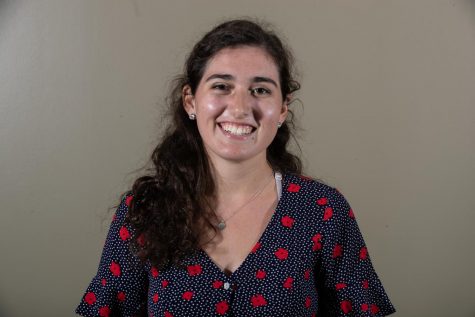Undergraduate-to-graduate programs, post-baccalaureate initiatives growing at the UI
With 43 undergraduate-to-graduate programs at the UI, and more combined degree programs post-baccalaureate, the graduate college is seeing an increasing desire from students to get degrees faster and cheaper.
The Old Capitol is shown on Monday, July 25, 2016.
March 13, 2019
Saving money and saving time: these two factors are driving students to enroll in combined degree programs at the University of Iowa.
Undergraduate-to-graduate programs, or “U2G’s” as coined by the College of Public Health and adopted by the UI graduate college, allow students to earn their master’s degree just one year after graduating with the bachelor’s, said Heidi Arbisi-Kelm, UI graduate college assistant dean for academic affairs. Since the fall of 2012, there have been 143 alumni of U2G programs at the UI, she said.
“I think it’s received as a win-win in many cases for both students and programs,” Arbisi-Kelm said. “At the UI, we are the largest seeder into graduate education. Most students who go to the UI for graduate school came from undergrad here.”
As of fall 2018, there are over 100 students enrolled in 43 U2G programs on campus, Arbisi-Kelm said. The number of students has doubled since fall 2015. With the growing popularity, Arbisi-Kelm could see that number doubling again by 2020 or 2021, she said.
RELATED: UI College of Nursing and Eastern Iowa Community Colleges put nurses on fast track to nursing degree
“We are on a growth trajectory. With better outreach and students having a sense of how this opportunity could help them, they would take advantage of it. It’s not for every student, but for whom it works, it works well,” Arbisi-Kelm said.
The UI has looked at Stanford as a leader in U2G’s, or “coterms” as they call accelerated degree programs, Arbisi-Kelm said. They have over 400 students participating in coterms, and with the rapid-growing interest here, the number of UI students enrolled in U2G’s could reach that of Stanford’s in a few years, she said.
Other schools have taken notice of the UI’s programs, Arbisi-Kelm said. The University of Northern Iowa contacted her for more information on Hawkeye U2G’s.
“I’ve also seen at our national conferences for graduate education — there are now concurrent sessions about accelerated master’s taking place, whereas even a couple of years ago, no one was even talking about it,” Arbisi-Kelm said. “I do see the trend of these programs continuing,”
UI third-year student Emily Houston is part of the first wave of U2Gs in the UI College of Public Health. She is a public health major and will pursue her master’s in policy, Houston said.
RELATED: Tippie revamps executive M.B.A. program to begin next fall
“A great thing about the program here is they do a lot of professional development and you get to connect with professionals in the field. The program itself felt like a great starting point to network,” Houston said.
Combined degree programs are not confined to the bachelor’s-to-master’s trend. There are other post-baccalaureate initiatives on campus, such as the PharmD/Health Informatics program that was approved by the Board of Regents to begin enrolling last fall, adjunct associate professor Kirk Phillips said.
PharmD/Health Informatics allows a pharmacy student to take a year off from their doctoral pursuit to earn a master’s in health informatics. This typically takes place after their first year of pharmaceutical school, Phillips said.
“I think the challenge is they are expected to step out a year from their pharmacy degree,” Phillips said. “Some resist the additional time it requires but completing a master’s in a year is a great opportunity for students.”




